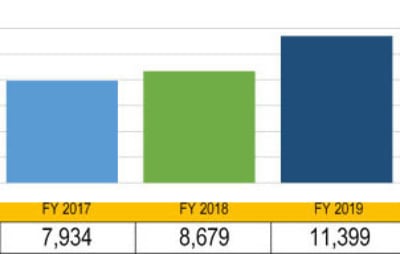
The following is a press release from RTI International
RESEARCH TRIANGLE PARK, NC—For more than 35 years, women have outnumbered men on college campuses across the country, yet men still dominate science, technology, engineering, and math (STEM) classrooms. According to a new study, much like STEM classrooms, women entrepreneurs own only one-third of all STEM-related businesses.
“Innovation and entrepreneurship are critical to driving economic growth in all industries. However, in STEM fields, the potential for economic gain is particularly high, especially from commercialization of innovations. To drive growth, we need broad and inclusive participation from men and women.” said Laura Morrison, study author and economist at RTI International. “Inclusive innovation begins with the pipeline of STEM-trained entrepreneurs. We need to facilitate entrepreneurial opportunities for women in STEM, as well as encourage women and girls to pursue STEM education.”
The study, conducted by RTI and BD2 for the National Women’s Council, analyzes the disparity between men and women in STEM in relation to workforce participation and commercialization efforts. The study found:
- Men are roughly twice as likely to be self-employed in STEM fields relative to women.
- Self-employed men in STEM are almost twice as likely to be employed in computer or mathematical occupations and three times as likely to be employed in architecture or engineering occupations relative to self-employed women in STEM. However, self-employed men, compared with women, are less likely to be employed in a health field.
- Self-employed women in STEM fields, compared to similar men, consists of individuals with an undergraduate degree that is not related to science or engineering.
- In both STEM and non-STEM fields, men-owned businesses are larger, on average, employing nearly three times as many employees and grossing three times the amount of receipts than women-owned businesses.
- In all measures of commercial licensing, such as patenting, trademarking, and copyrighting, a distinct gender gap exists within STEM firms. Accordingly, men-owned firms are significantly more likely to hold at least one piece of intellectual property than women-owned firms.
Data also showed that women in STEM positons are often less prosperous than men. According to the study, female-owned STEM businesses average $173,000 in sales versus a $543,000 average for male-owned businesses.
The study reports that women face unique challenges when it comes to pursuing positions in STEM, such as limitations to accessing financial capital for education or entrepreneurship, gender discrimination, and limited access to important networks. These limitations may account for the lower percentage of women who are self-employed and work in STEM.
Based on these findings, the study outlined policy improvements to increase participation in STEM industries among women. These improvements include developing programs targeting STEM pathways for women and minority students, and increasing visibility of programs that already exist.
“Our research shows that there is a need for federal funding and policies that encourage women to pursue STEM careers,” Morrison said. “We are excited to see that these efforts are already starting with the enactment of the INSPIRE Women Act and Promoting Women in Entrepreneurship Act.”
To learn more, visit the National Women’s Business Council to read the study.
To join the conversation, use the hashtag #NWBCSTEM
Recommended reading



